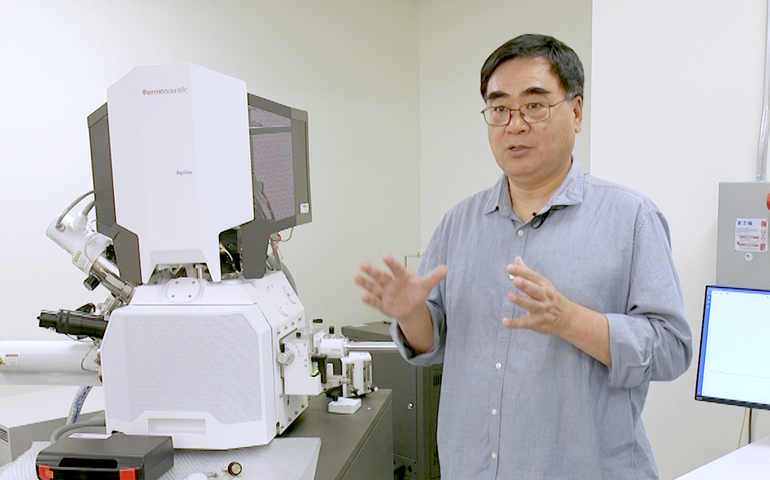A facility at UMass Medical School that has helped train hundreds of area scientists and analyzed thousands of cell samples is now expanding.
The Cryo Electron Microscopy Core Facility in Worcester, which opened three years ago, is installing new high-powered microscope equipment to expand the type of research academic scientists and pharmaceutical companies conduct, the medical school announced Tuesday.
The facility uses what’s called cryo-EM, a technology allowing for detailed viewing of cells, viruses and proteins, with a potential to help design new drugs. A new microscope system allows researchers to study cells more in their own environment without damaging or extracting them than was possible before, said Chen Xu, a UMass Medical School associate professor of biochemistry and molecular pharmacology and the director of the cryo-EM facility.
The type of research allowed at the UMass facility is the first of its kind in New England and one of only 30 or so in the country, Xu said. The work, which is done when cells are frozen to very low temperatures, can lead to a much better understanding of structural biology and diseases including cancer, he said.
“We’re very lucky to be a part of it,” Xu said.
The facility serves nearly 100 academic institutions and laboratories, with its largely automated and computer-aided machines operating around the clock helping meet demand. Its first two microscope systems cost $5 million and $4 million each, funded by the Massachusetts Life Sciences Center and the Howard Hughes Medical Institute, respectively. The Howard Hughes Medical Institute has also donated $1 million for the facility’s latest microscope system, which complements the other two machines.
The microscopes are nothing like the countertop ones used to peer into a petri dish in a high school laboratory. The $5-million machine, called a Titan Krios, is more than 9 feet tall and looks like a giant refrigerator.
“These are humongous machines,” Xu said.

